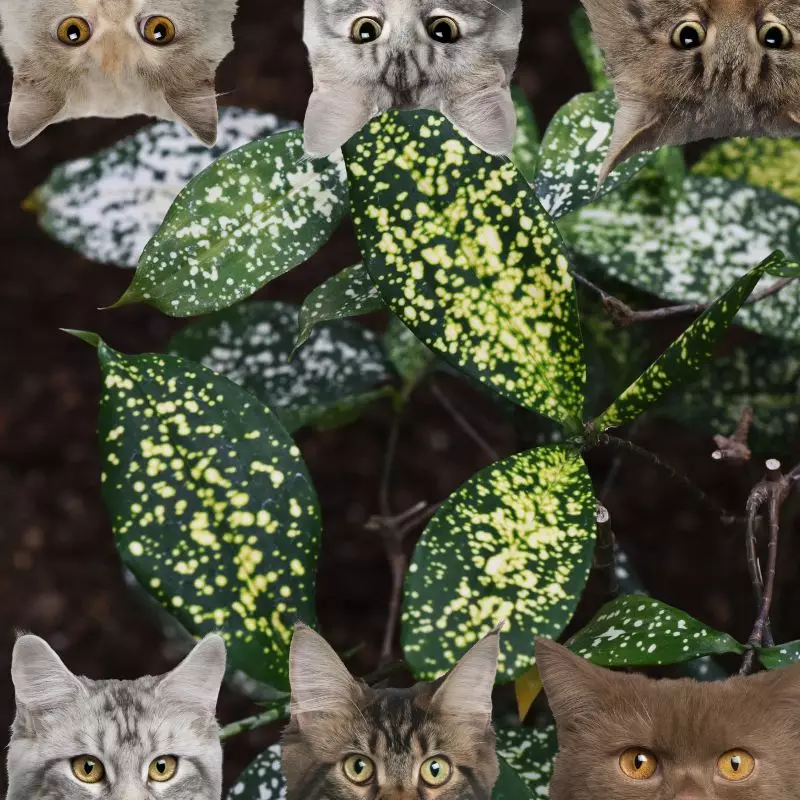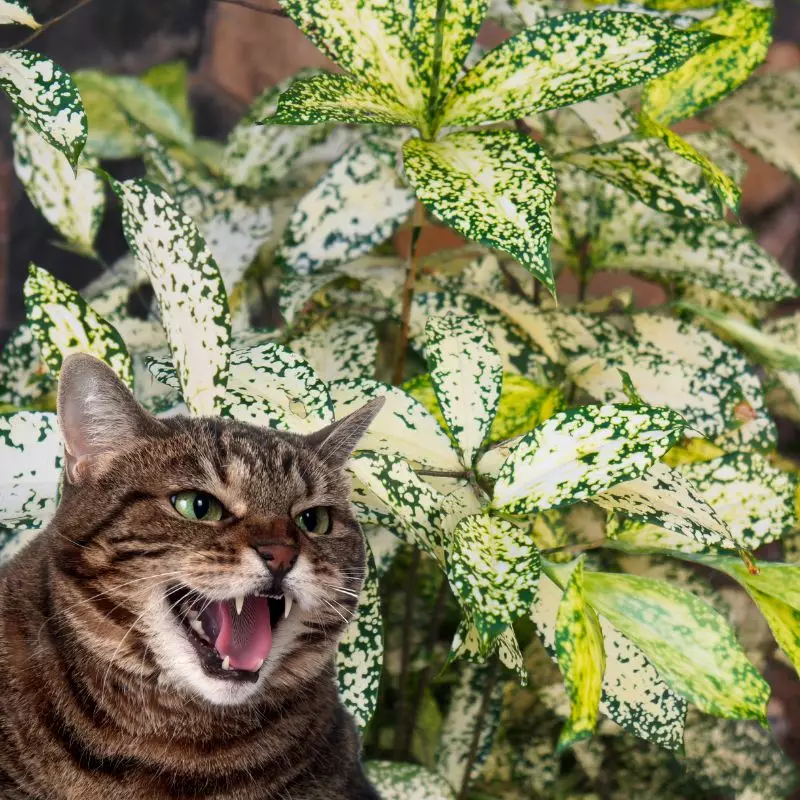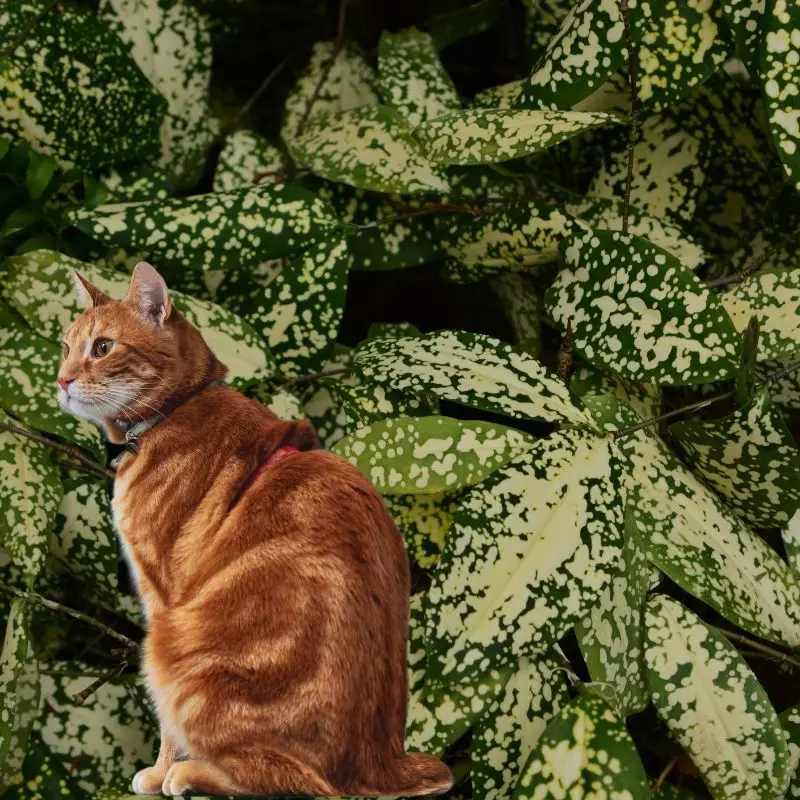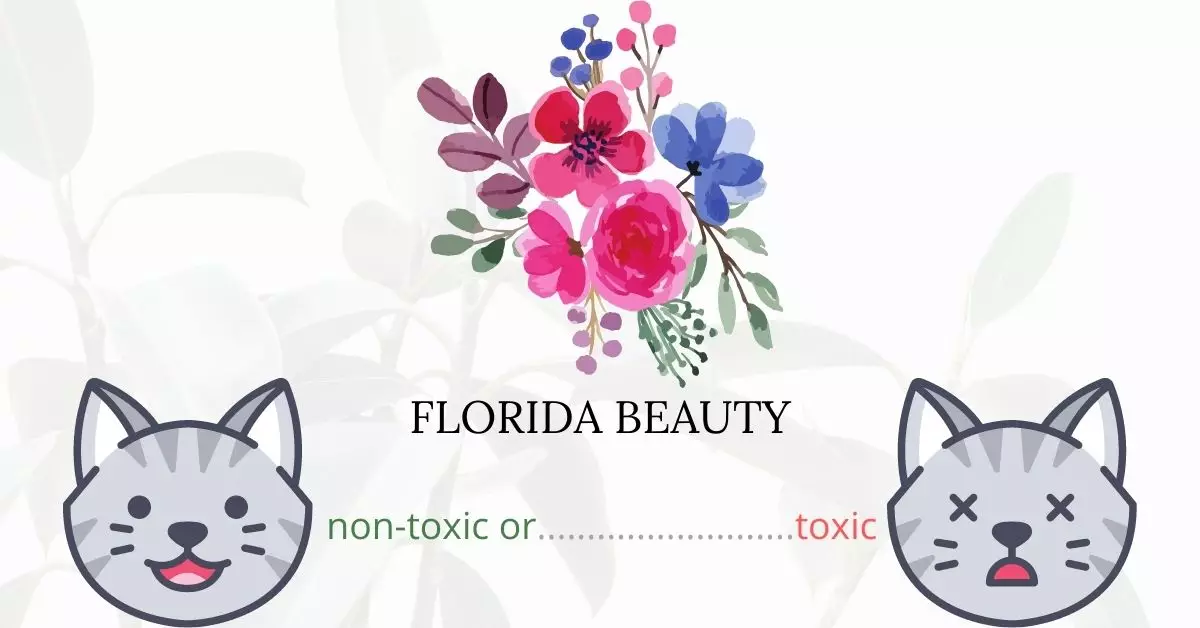Yes, Florida Beauty (also known as Gold Dust Dracaena and Spotted Dracaena due to its distinctive foliage) can be toxic to cats. While Florida Beauty is generally considered non-toxic to most other animals and humans, cats are particularly at risk. The specific toxin present in Florida Beauty is not fully identified, but it is believed that saponins and possibly alkaloids are present in the plant. If ingested, cats may exhibit symptoms such as gastrointestinal distress and excessive salivation. If your cat consumes any part of the Florida Beauty plant, it’s imperative to seek veterinary attention immediately.
This article has been meticulously written in collaboration with a team of experienced DVMs (doctors of veterinary medicine). Their expert insights have enabled us to offer precise and timely details about the potential dangers of various plants, including the Florida Beauty, and its impact on cats. Moreover, our assertions are further fortified by comprehensive research from high-authority websites like ASPCA and PetMD, ensuring the utmost reliability and accuracy in our findings.
Clinical Signs of Florida Beauty Poisoning in Cats

When a cat comes into contact with, inhales, or ingests the Florida Beauty plant, its body exhibits several reactions. These reactions stem from the cat’s inability to process certain components of the plant. Cats inherently lack the enzymes required to break down the fibers present in many grasses and plants. As a result, their digestive systems can’t process these components, which can lead to poisoning.
Here is an analysis of the clinical signs and their causes:
- Dilated Pupils: Triggered by the toxins in the plant affecting the cat’s nervous system.
- Excessive Drooling: A common immediate response to the ingestion of a foreign and potentially toxic substance. This can be due to irritation in the mouth or throat or the body’s attempt to expel the toxins.
- Gastrointestinal Upset: Direct irritation of the stomach and intestines due to the indigestible fibers and harmful alkaloids.
- Loss of Coordination: Alkaloids in the plant can interfere with the cat’s neural functions, leading to disorientation and imbalance.
- Diarrhea & Vomiting: The cat’s body trying to eliminate the toxic substances it has ingested.
- Difficulty Breathing: Possible inflammation in the respiratory tract or the effect of toxins on respiratory muscles.
- Abdominal Pain: The result of gastrointestinal irritation and the body’s struggle with the indigestible components.
- Increased Heart Rate: A common response to distress and the effects of toxins on the cardiovascular system.
- Depression: A consequence of the toxins affecting the cat’s central nervous system.
- Lack of Appetite: Due to nausea, abdominal pain, or the overall malaise the cat feels from the toxins.
- Weakness: A culmination of the body’s exhaustive response to combat the toxins, leading to a depletion of energy.
It’s essential to note that the severity of these symptoms can vary based on the cat’s overall health, age, and its individual sensitivity to the alkaloids present in the Florida Beauty plant. If you observe any of these signs in your cat after contact with the plant, seek immediate veterinary care.
First Aid and Treatment of Florida Beauty Poisoning in Cats

The heart rate of your cat may be stabilized with medication, and the bronchial tubes may be opened to promote normal breathing. Your veterinarian will strive to eliminate any remaining plant material from your cat’s system once the cat has been stabilized. If your cat isn’t vomiting already, your veterinarian may urge it. Depending on your cat’s specific needs, the veterinarian may also perform gastric lavage and deliver IV fluids and activated charcoal to ease the poisoning symptoms.
Recovery from Florida Beauty Poisoning in Cats

Following up with your veterinarian may be necessary to re-check your cat’s blood and urine to ensure that no long-term issues have arisen. If there are no complications or other underlying health issues, your cat will be back to normal in no time.
Prevention of Florida Beauty Poisoning in Cats
Remove Florida Beauty plants at home and make sure not to bring this plant again in your household. Before purchasing or growing any plant, it is best to do your research first to know if the plant has harmful effects in your feline companions. You should also restrict your cat from going too far away from your house to minimize the chance of encountering a Florida Beauty plant or even other toxic plants in your neighborhood.
If you love plants but have cats at home, check out these lists:





